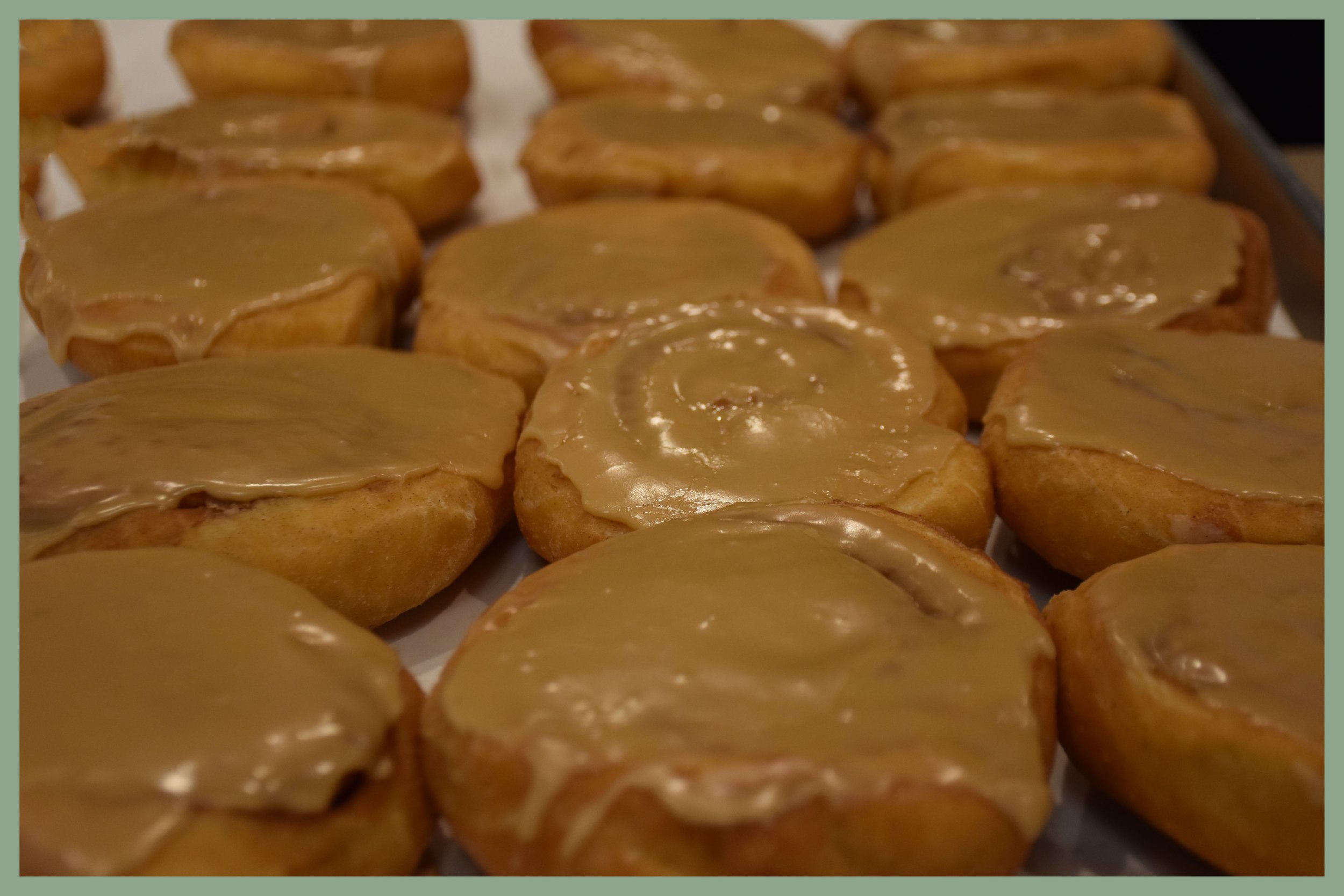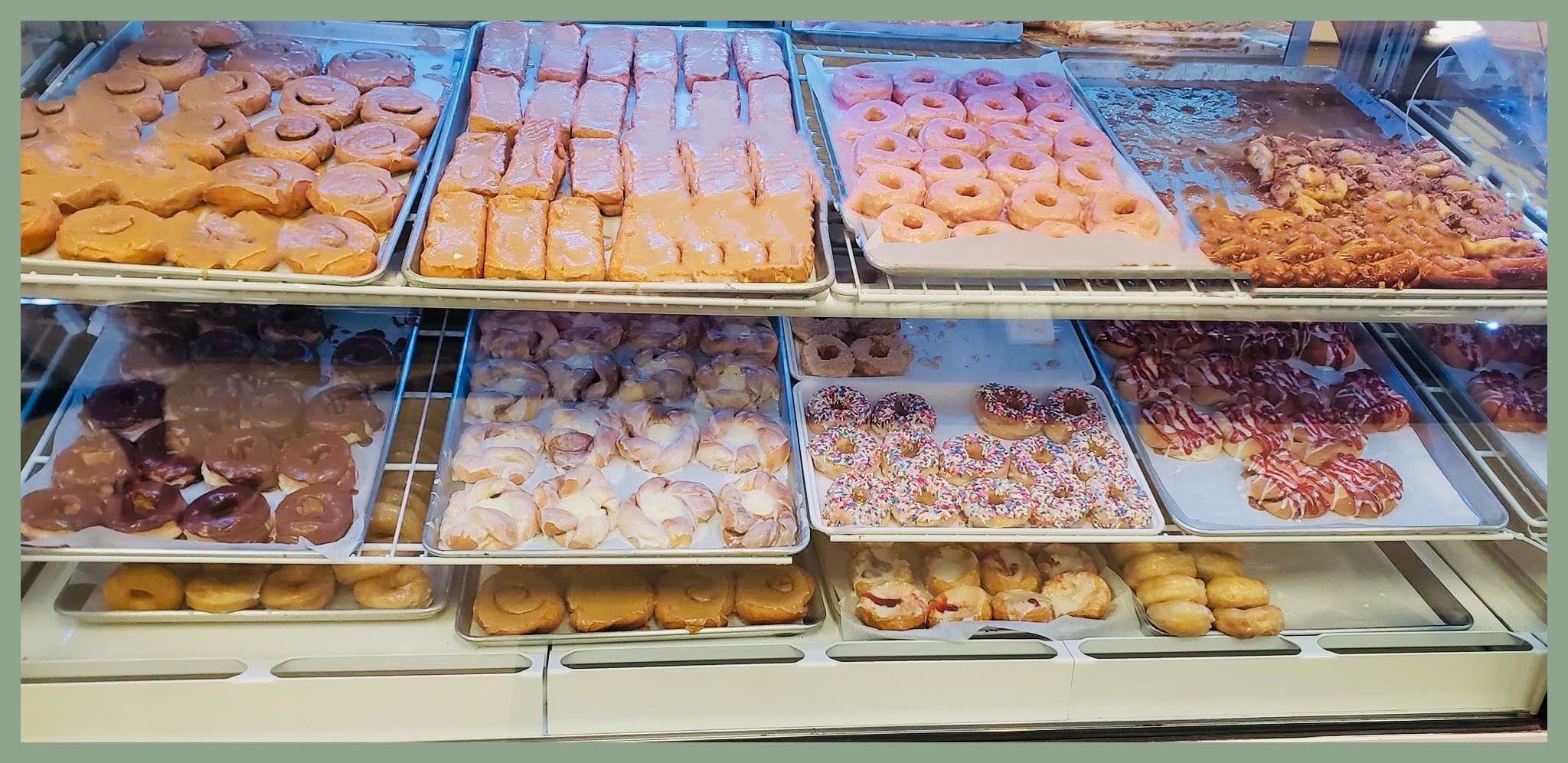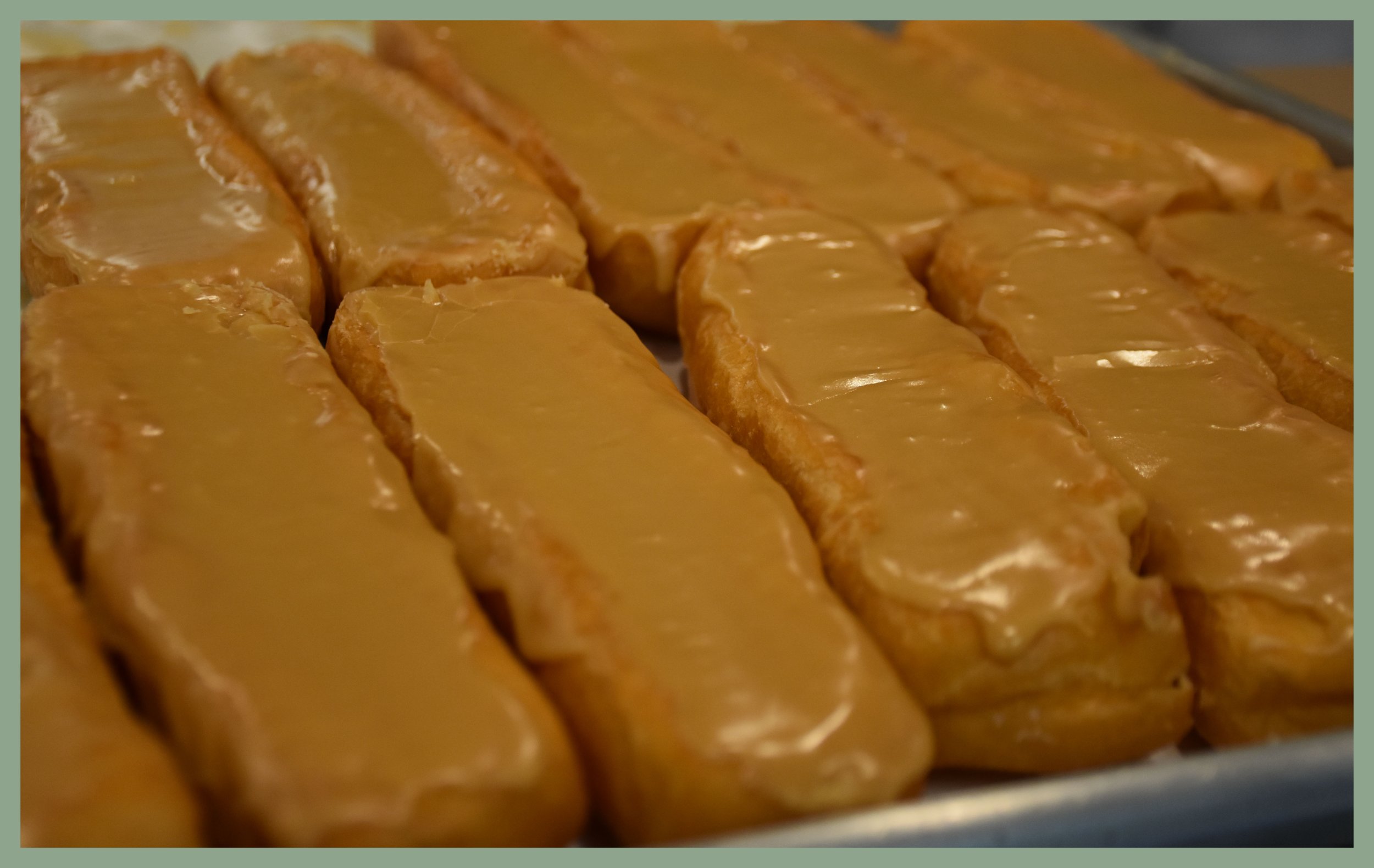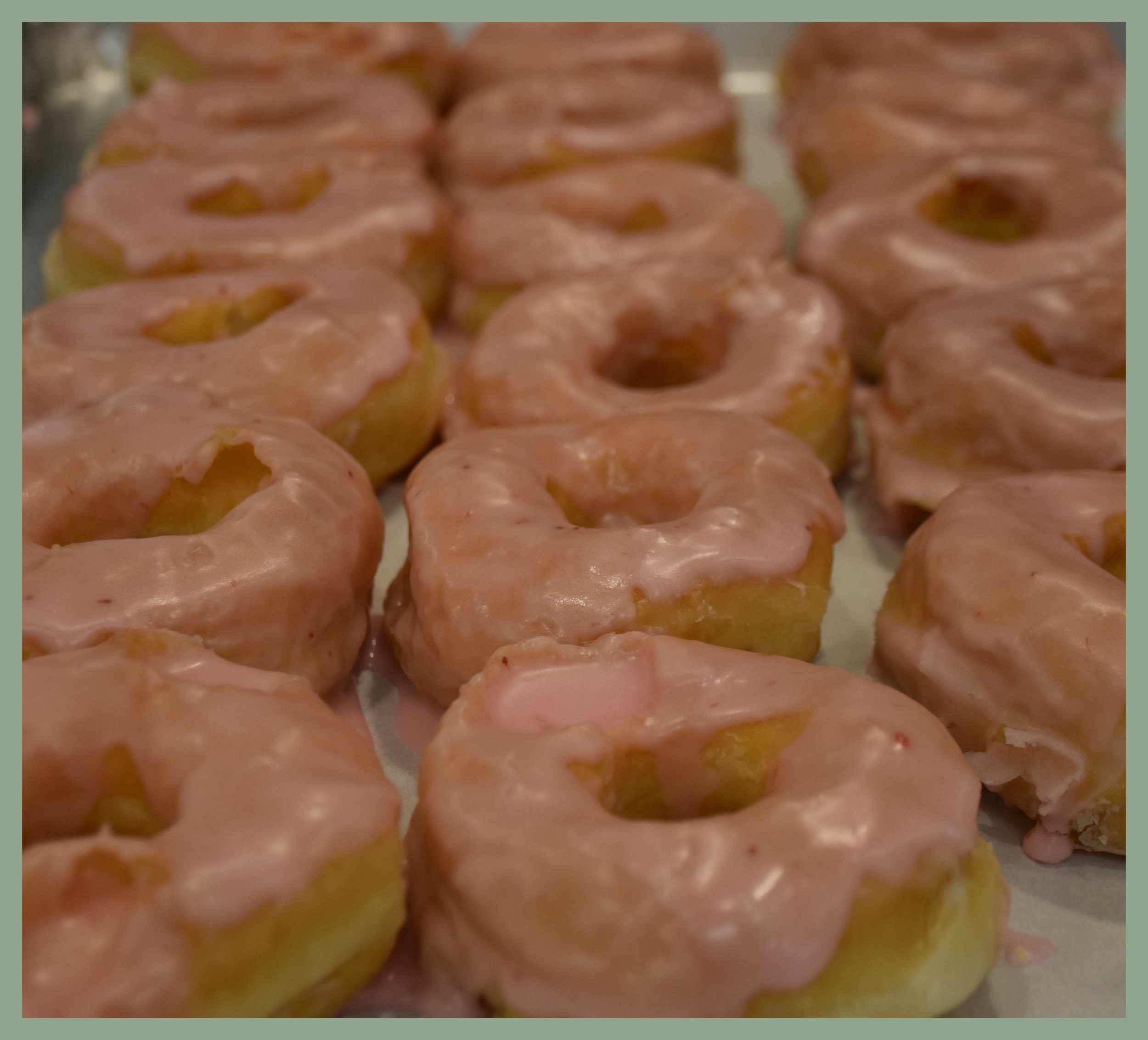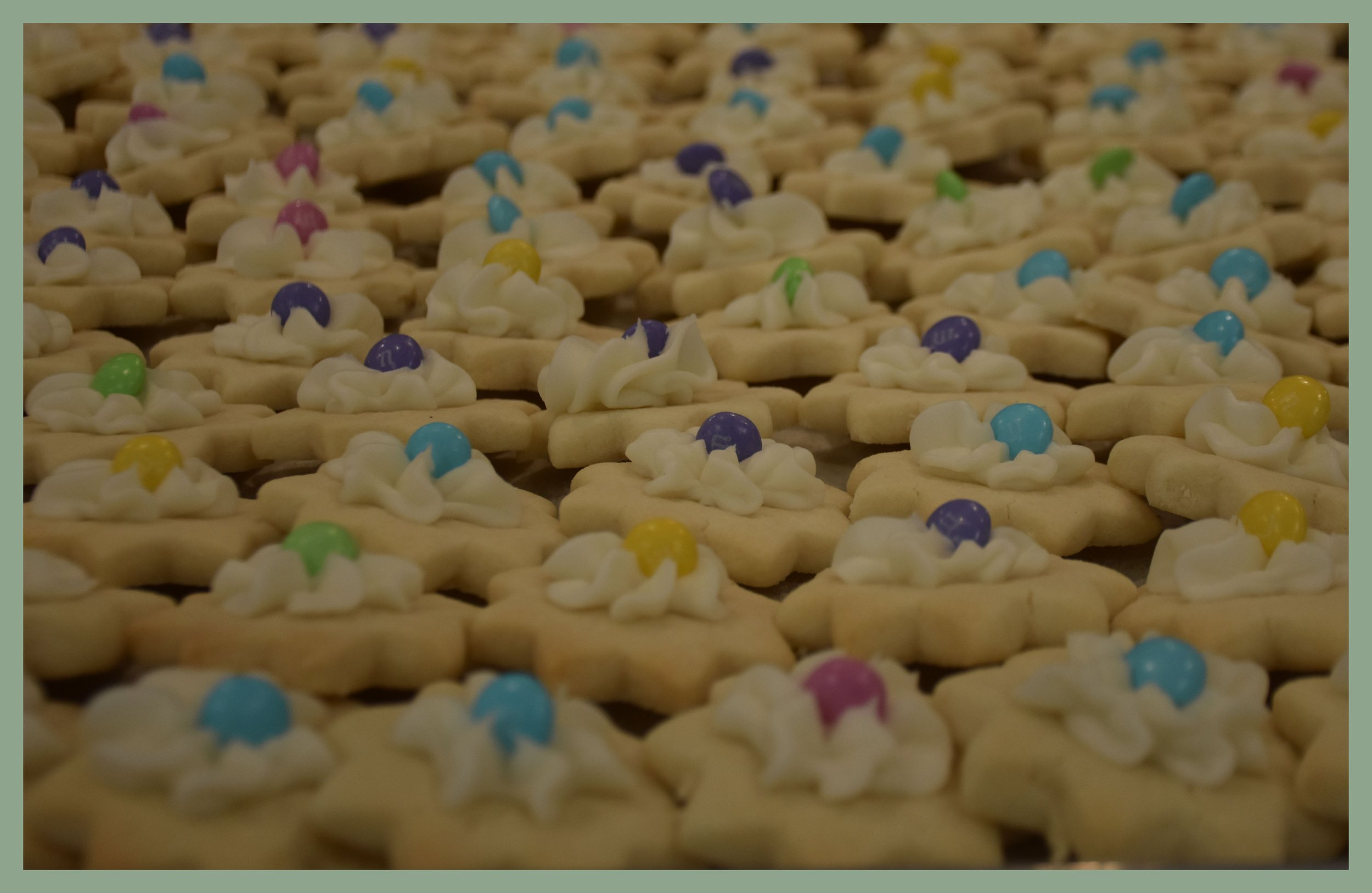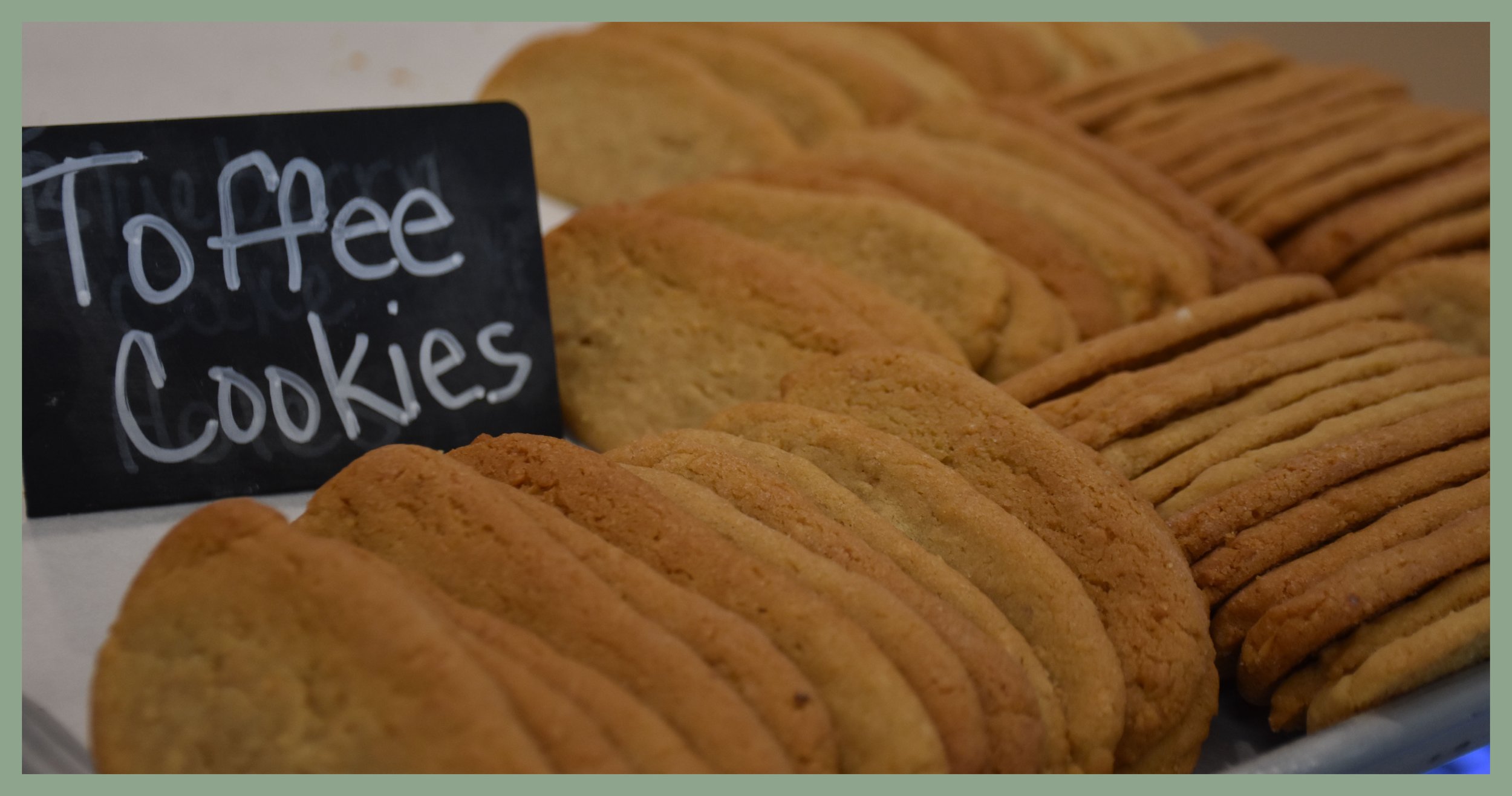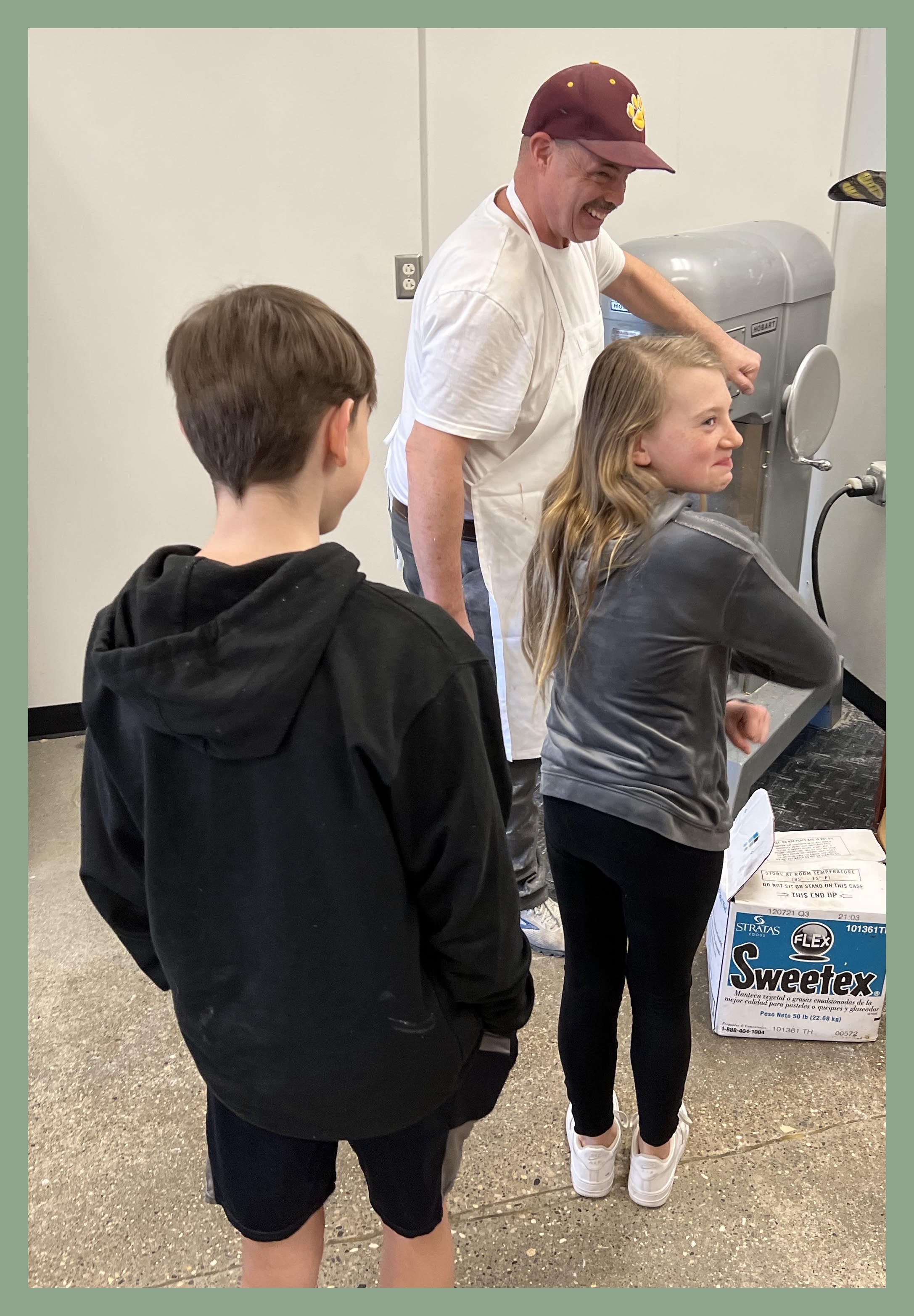The original bakery in the 50’s
The Alexandria Bakery was an institution. Owned and operated by two generations of the McClung/DiRuzza family from 1951 to 2001, it was the gathering place of our small town in central Indiana. The Bakery was a microcosm of the American melting pot, where the high school janitor and the mayor, the piano teacher and her grown-up ex-students, the Methodist preacher and the dentist, the banker and the can-collector all shared tables and booths to start their day with coffee and a caramel roll.
Oh, those caramel rolls! The taste was legendary. High schoolers on the way to classes, farmers headed to the fields, women who had just dropped their elementary children all stopped by the Bakery—some to taste and talk, some to pick up and go.
The Bakery was also where one could order butter cookies with colorful icing for graduation receptions or baby showers. Secretaries popped in to get a box of fresh glazed or chocolate frosted donuts for the office coffee breaks, PTA meetings, or 4-H Fair planning commission. Churches made sure to have bakery donuts and pecan rolls on hand for the “gathering’ between Sunday School and church.
When Bill and I married in 1962, The Bakery was an assumption in Alexandria. Our kids grew up knowing breakfast at the Bakery; their grandmother took them there when they were little, and when they were in high school that was where they met their friends on Saturdays.
When in 2001 the DiRuzzas closed the Bakery and retired, the town was sad. The old brick building with the tin ceiling was more than a location; it was a symbol of community that held us all together. When the crumbling building was demolished in 2010, more than a few tears were shed. I think many feared that small towns of America were somehow crumbling, too.
It was gone. The Bakery was gone.
The city made a “green space” where it once stood and tried to use that space for Christmas decorations, Santa’s Shanty, or booth space for Fall Festival. But in spite of our best efforts, the hole on Harrison Street stood like a missing front tooth in the smile of our “friendly small town”.
Twenty years had passed when the grandson of the original owners came to Gina Brisco, our manager of Gaither Music, and the conversation began about maybe using the space that had been Gaither Family Resources to house a revival of The Alexandria Bakery. Andy DiRuzza began work on repurposing the place, creating a kitchen for dough mixers, long wooden kneading tables, ovens, and all that a bakery would demand.
Rumors began to giggle their way around town, and excitement was high. At last, in December the bakery was ready for a trial run—a two-day opening to see if this idea would fly. At 6:00 am that day in December the line of those waiting stretched across the front of the building and down the parking lot. The DiRuzzas ran out of product by 9:30. Yes! The town of Alexandria was ready!
When the DiRuzzas opened for real in February, it was obvious that the Alexandria Bakery hadn’t been gone after all. It had always been there in the solid institution of our memories. At the first taste of the famous caramel rolls, eyes closed and a groan of ecstasy would come from deep inside. “Ummm, just like I remembered....”
Because Bill and I both have March birthdays, all three of our grown children came home during March. I’d like to say they were most excited about being back on the hillside where they grew up, but in reality, I think they were more excited about the Bakery. We watched as one by one they took their first bite of their favorite pastry, then we heard that groan. “Ummm, just like I remembered. The taste of my childhood!”
I am coming to believe that the Bakery was more than a disintegrating building and some makeshift booths and tables. It was more than buttery cookies and warm pecan or caramel rolls. It was something parents wanted to pass on to their children. It was grass roots belonging to a community that had your back, a knowing you were somewhere safe and accepted. It was tastes and smells and sounds that come from shared warmth and laughter and experiences.
When our youngest grandchildren were here for Spring Break, Benjy talked Andy DiRuzza into taking Liam and Mia on a “tour” of the bakery process. They got baker’s aprons to take home and the chance for a photo op in front of the chalk board wall and the observation window. They even got to put on sanitary gloves and add sprinkles to the freshly frosted donuts. The tables out front were full that morning of people (and their children) who remembered this gathering place and the tastes that warmed their spirits and bodies so long ago.
And I am thinking that Leonard Sweet might be right when he predicts what just might save the Church and our country. “Bring back the table!” he shouts. Have more meals and fewer committee meetings, more pitch-ins and fellowship around a banquet table and fewer marketing strategy planning sessions.
In all those years of the Jewish dispersia—the scattering by persecution of the Jews to foreign countries when they had no country of their own--they carried their nation on their backs. Their sacred traditions, their language, their shared history, their certainty of chooseness—all these turned out to be portable. After carrying these all those years, what they needed was just a plot of land, and, voila! They were a nation!
Maybe, just maybe, all the divisive vitriol and efforts of extreme factions to tear our nation and our communities apart have not been so successful after all. Maybe, just maybe, a bakery here and a church pitch-in there and a family reunion in a field somewhere else might reveal that our beloved community, our homeland, and our citizenship in an eternal Kingdom were always there in our hearts. Maybe a sweet taste or bit of music or the sound of laughter or a child’s prayer at night might just give us the hope that the Nation on a Hill and the Church Triumphant are alive and well. Maybe what we most need is a big table, some dough filled with yeast, and candle or two to light our way back home.


